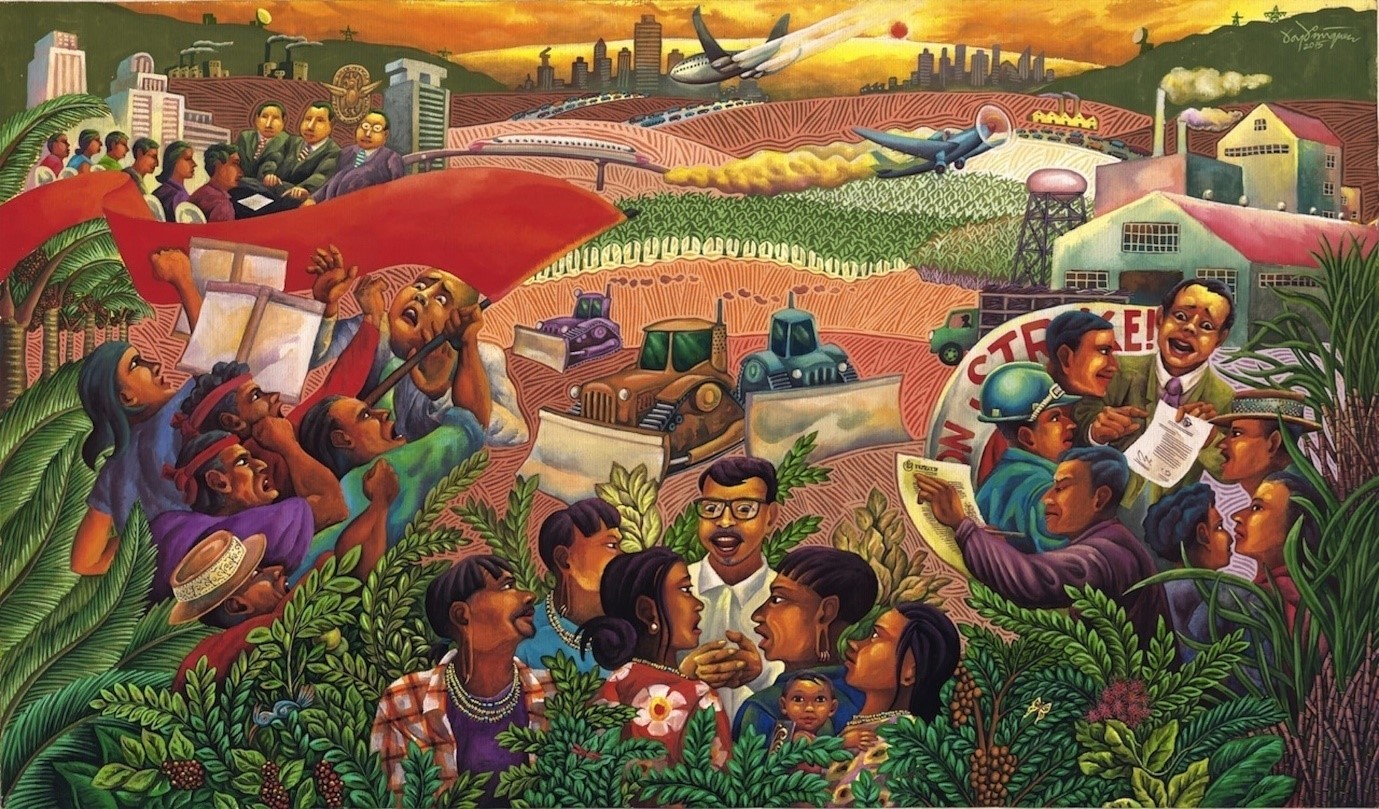by Ian Scoones
The aftermath and legacies of global land grabbing will be discussed at an international conference next week.
In 2011, a major conference on land grabbing was held at the Institute of Development Studies in the UK to take stock of the impacts across the world. The event was convened by the recently formed Land Deal Politics Initiative (LDPI). More than a decade on, the LDPI has reconvened and is collaborating with several leading research hubs to host an International Conference on Global Land Grabbing between 19 and 21 March in Bogota, Colombia, which will include academic researchers, activists, and policymakers from across the world.
The LDPI was originally launched as a loose network of scholars and activists concerned about the rise of land, water and green grabs across the world and the consequences for rural livelihoods and agrarian relations. A massive wave of investment in land, resulting in expropriation and displacement had emerged following the financial, food and energy crises of 2008-09. The initiative wanted to understand what was going on and how best to respond.
Since its inception, the LDPI has facilitated small grants programmes for early career researchers, organised a series of events to analyse the social, economic, political and environmental dynamics of large-scale land deals and their implications for policy and social movements, and facilitated the publication of research material on the global land grab.
Although land grabbing is less in the headlines compared to before, and the dynamics of land grabbing have changed, the impacts and consequences of land expropriation for a range of reasons – from agriculture to mining to energy to carbon to conservation and infrastructure – continues. The Bogota conference will be asking important political and research questions about the aftermaths of land grabs: What happened to the thousands of land grabs documented by researchers, non-governmental organisations, activist groups, news media, and aid agencies? What new configurations of land, labour and capital have emerged since? How has the rise of authoritarian, state-led populism and politics re-shaped the tensions between ‘foreignisation’ and extraction?
In April 2023 the LDPI made a Call for Applications for Small Grants ($3,000 each) for early career researchers from the global South, and we received close to 700 applications, demonstrating the continued importance of land grabbing across the world We were able to fund only 27 recipients who will present their research amongst many other conference participants from all over the world.
The conference will be attended by over 500 participants, with around 200 papers having been accepted for presentation in multiple parallel sessions. Several hundred civil society and social movement activists as well as policymakers will also attend, including ministers of land and agriculture from the region. We are delighted that the Vice President of Colombia, The Honourable Francia Márquez, will present a keynote address.
Six plenary sessions are planned for the conference. The conference will open with discussions of land grabbing in Colombia and the responses that have arisen. These experiences will then be set in context with a session on global land grabbing, reflecting on what has happened over the past decade or so. Thematic plenaries will follow with the first on Geopolitics, financialization and digitalization; the second on Climate, energy and green grabbing; the third on Violence, resistance and mobilization; and the fourth on Policy, practices, and alliances to move forward, before a final session attempting to thread the conference themes together.
To set the scene and reflect on the context for the conference, an article has just been published in The Journal of Peasant Studies – Global land grabs: What has been done, what has changed, and what’s next? – which was written by LDPI coordinators. To accompany this, a ‘key concepts’ piece by Jun Borras and Jenny Franco on land rushes has just been released, along with the first set of new LDPI working papers.
Many more published papers and special issues will no doubt emerge from the conference, along with important practical conversations between researchers, activists and policymakers about ways forward. In terms of academic publishing, five leading journals are supporting the initiative – Journal of Peasant Studies, World Development, Antipode, Globalizations, and Análisis Político – so look out for important analyses and case studies on the ongoing global land grab and its multiple ecological, social, economic and political dimensions.
Cover image: Artwork by Boy Dominguez
